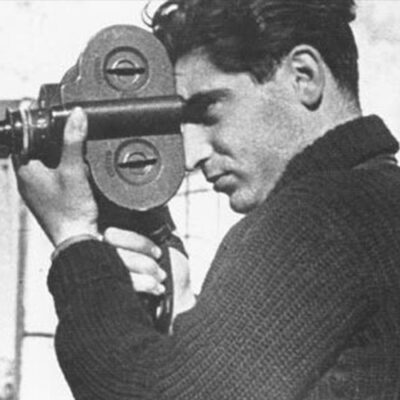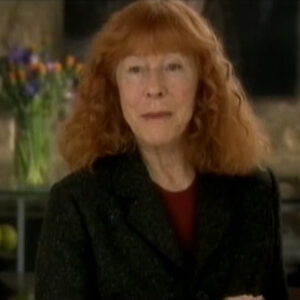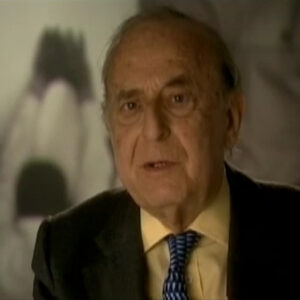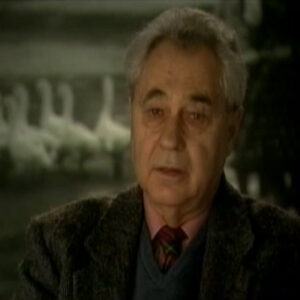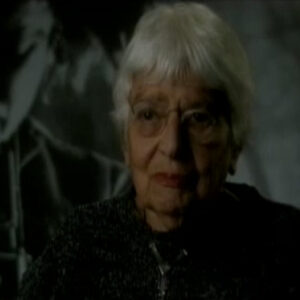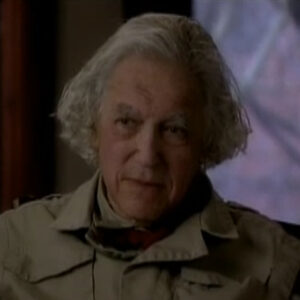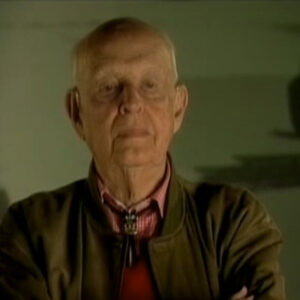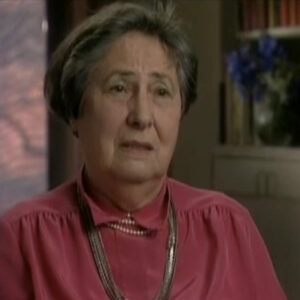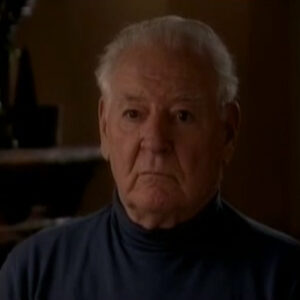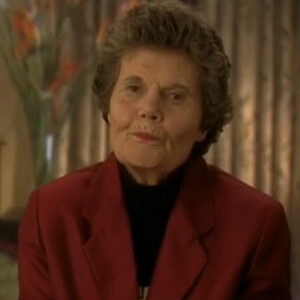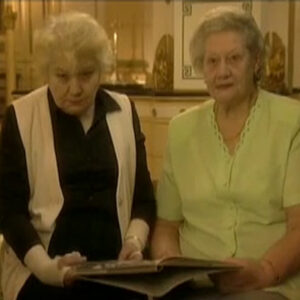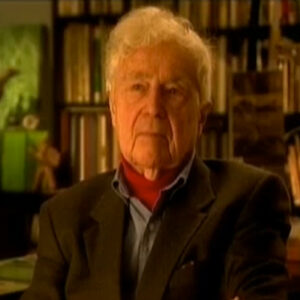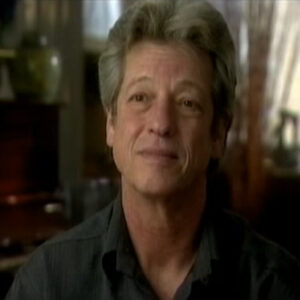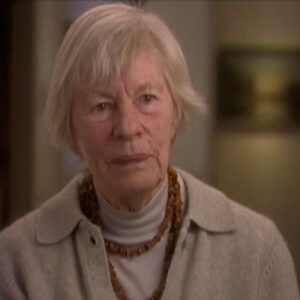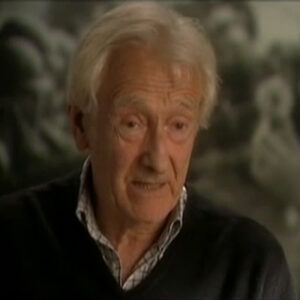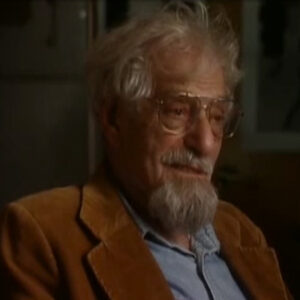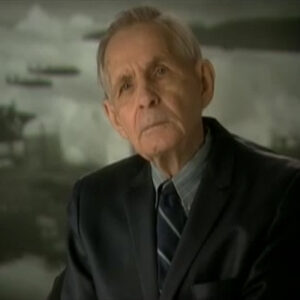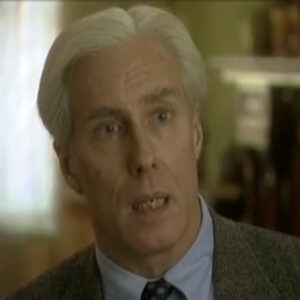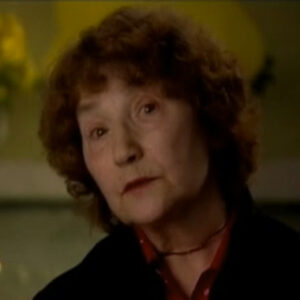Speaker Well, as far as I understand. Mr. Karzai is son, grandson of a very distinguished aristocrat, and Ducobu, Japan and Mr. you know, it’s a son of the well-to-do merchants, you know, and. All are delegations, just like looks like. Mr. Karzai’s elder brother, I am staying away, and Mr. Karzai, Mr. anyway, I came to know them to them through Colonel. I think this is six to seven or six to eight when I was invited to come to Japan to be consulted advisor to some big project and export project, and the last time I was introduced to them, but I knew about them out of, you know, Japanese bruggen of our focus.
Speaker Kapur mentions them and as it’s well known even before that.
Speaker You know, this is one of the most well read in a book, actually. Then two gentlemen translated that book. It is now 29 print or something like that. It’s it’s really one of the longest, you know, seller and the kind of book I don’t know, it was students, even housewives, elderly folks read.
Speaker So what is it, about half a story that is so moving or intriguing to Japanese?
Speaker Good question. I think.
Speaker This. Marvelously translated the book. Of course, it’s, you know, influenced a lot because, you know, and another thing is this, I think it was also wondering why Kapa is so, so well respected, so popular among Japanese and so on. I think a lot to do with the. I don’t know, first of all. Of course, she’s known as a war photographers, not necessarily he wanted to be war photographers, photographer, but to.
Speaker He’s his image, very heroic image, and that’s, you know, we thought in Japan up to the end of war, we thought that we are trying to be heroic, you know, heroic, you know, but obviously we are not in the end. But his works, I think, taught us a lot because. You know, he dealt with a very cruel circumstance and war will come back. It’s a very, very cruel illustration. And I grew up in Japan and all I remember about the war, I was six years old for them.
Speaker So I you know, I saw many dead bodies on the very real scared about those things and.
Speaker But for some reason. You know Bob’s pictures about war, but it’s extremely, I don’t know, very peaceful to convey such a message.
Speaker And I will describe, but it’s maybe also the way.
Speaker He. He died and in fact, he went into China. He didn’t want to go there. He was invited by Mr. Mr. Ray and Mr. Cosway, but for some reason, he had to go to India, China. And. Other than the way he died. Most heroic way, perhaps. Those whole things moved us and also. Ray. You know, Cornell related to him one time over. Ten years ago. I was instrumental to organize exhibition about Incap Anacapa, two brothers. And the Japanese people like this kind of, you know, brother, two brothers really love, respect each other and those things, I think, you know, keep. Of Bob. So popular, so this respected. And I think just about no one else. Like Bob Kapa. That his name stands up. And everyone knows about him and everyone knows about this book and the household isn’t a household name, but the sense of all, you know, with a great respect. And it’s amazing it’s never changed.
Speaker And how long has this been? I mean, I guess it was started before he before he came to Japan?
Speaker Oh, yes, I believe so. And but however, I was just too young at that time and I was not interested in any photography or anything. I never studied photography.
Speaker So I don’t know, you know, he he died when I was much too young.
Speaker So do you think that it is what you were talking about a little bit? Do you think it was that that war was still so prevalent with Japanese people that his images resonated with their fears and their. Or do you think it was that camera shot more in a new and different way than of.
Speaker Well. Let me answer to that question this way, you know, his pictures.
Speaker He made in early days, I forgot and 30s in China, and those also sucked a lot like a picture of the trend line in Hong Kong and you know, it’s in Yuan. He was kind of a liaison officer for mom.
Speaker And those kind of picture he made.
Speaker It’s also a circus and also we I remember. While he was in Japan. He took many, many pictures of the children.
Speaker And the way those pictures of Bob stack me raising these. He always photographed children the way he knew down there, low enough to shoot eye level, I think all that’s overwhelmed me. That’s explained something about him. His quality as a human being is he has genuine respect to to the children, even children, of course. And those things, I think, just just touch us, you know, moved us. That’s what my personal, you know, feeling.
Speaker So he was with each person, including children, to get to them at their own level.
Speaker I believe so. And obviously, he’s a very generous person. And if this is my personal feeling, I. I believe he’s friends of. You know, Japan, Mr. Cosway, you know, were also very generous people. I heard from them, you know, well, when Bob was struggling moneywise and so on, yeah, I understand that also helped him a lot. And, you know, and also. Bob may learn from them also to be generous, and so he is only generous and also his brother Cornell has been so generous, at least to me all the time when I was I want to be photographer.
Speaker Against all odds, I never studied photography and I went to school. But, you know, I could get any job, just about anything I wanted or my parents or against it, you know. But I wanted to be smarter. I don’t know how to stop.
Speaker And I somehow I came to New York to learn this trade. I don’t know what to call it. And the first person I came to know is a carnality and. They have been so generous. I had money problems and time to time that time, you know, my parents were to do fairy can send the money because the double in hard currency at the time. You cannot be now Japan. You know, you can take out any amount of money you want. I’ll say so. And they ask me if I care about money. And I a broke and they gave me money. You know, I think those things, you know, already I think Bob was very much like that to his friends and his friends. Those Japanese gentleman were like that. And it’s a wonderful thing to to hear and witness from what I understand Mr..
Speaker Of and when his girlfriend threw him out.
Speaker Well, are you talking about. Yes, and also give the cattle council an income from it’s another Japanese gentleman, Peter. The tunnel that Okamoto, because I want time, yes, I remember I visited him in his studio and some I had some I think I think I got some job to photograph. And I began a good friend. And I ask him, you know, do you not you know of they are friends of a he was a friend of Cosway.
Speaker And, you know, and then you said, of course, you know, I mean, old friend of Garralda. And I’m I’m not surprised, you know, Gary, that name, strange name panel and from this painter.
Speaker And do you know how couple met and don’t know?
Speaker I think.
Speaker Oh, I can really I can be wrong, but I think sometime in the early thirties in Paris. And I’m sure those two gentlemen had a lot of money, not I mean, you know, I mean, not showing off, it is a gentleman, you know, very educated and very intellectual. So I’m sure the home and in both of them hang around, maybe some place can be tougher, sell or whatever. And all of them love to drink, you know, and so I don’t know exactly where they met. So, I mean, just I think it’s not destiny. They you know, they’re destined to meet each other.
Speaker It seems so. And then they became lifelong friends.
Speaker Yes. Yeah. And how and of course, of war, because during war they couldn’t meet each other and then.
Speaker Some 10, 10 years later.
Speaker You know, Bob was invited to come, I’m sure he was so thrilled to come and they met again and I’m sure, you know, they had every single day and the time even before they had time. You know, Ivashov, about that, I’m sure it would happen.
Speaker I could make some notes about things that Mr. Newitt wrote about Kalpa. And I was going to ask you if he’d ever talked to you about these things. And if not, just tell me. No, but he wrote Mr. Noah wrote about Cabot at Curtis funeral.
Speaker Did he ever tell you about that and gave this funeral? No. That’s why he never told me about it.
Speaker OK, did he ever talk to you about his driving?
Speaker No is a really bad driver already, drunken driver possibly, which is really bad distraction?
Speaker Well, I don’t know. I have no comment on it because I don’t know.
Speaker OK, and then. When they finally saw each other after 10 years of being separated by war, did he tell you what it was like to see happen again finally or can you imagine it? Well.
Speaker Their occupation was not the way they met. The way they lost their friend Bob. They are they are telling the house how sad they were. You know, I think their preoccupation is the more. More about it than how the United, because it must have been just just they can take it, you know.
Speaker Yes, I think it was Mr. Collazo wrote that Bob had. Embraced and very strongly when he left Japan and said, what an idiot I am to. To go something that they talk to you about that.
Speaker I heard about the almost like as if, you know, they told me, maybe they told me, but I don’t quite recall and, you know, just telephonists, you think you might have heard it?
Speaker What they would have told you about anything for you? Well.
Speaker Mr. Inoue was in America when he heard about, you know, and so he was he was kind of the director of the Kabuki theater group touring around America. And Mr. Cosway was in Japan when it happened, and just I’m sure they’re just so disturbed and they don’t know what to do. I’m Shahbandar.
Speaker I wonder if he thought he should have tried to prevent him from going or.
Speaker Well.
Speaker I’m sure they didn’t want him to go, but, you know, he he survived all those in wars that they thought, you know, oh, no problem, he’ll come back and Bob meant to come back. Maybe you could tell us a little bit about the man who the press on my insurance, my cameraman to manage the newspaper, reported Shimbun the symbolism in the newspaper.
Speaker Yeah. You know what it is and why they would have wanted to come and take pictures.
Speaker I think it’s this photography magazine called Camera Mainichi just launched around the time and the. Maybe they thought. How they can promote this magazine, and I’m sure they consulted with Mr. Cosway in a way and I’m sure. You know, newspaper people knew they had such a special relationship with the bar, so I’m sure they ask in this paper, ask them whether they can be instrumental to invite about and obviously, you know, easy thing to, you know, persuade Bob to come. That’s what really happened, I think.
Speaker He has an interesting and also I read that one of them, one of the friends, suggested that Bob shoot some of the horrors of Nagasaki, Hiroshima, some of the people who had been injured or maimed in the war, and he chose not to. And I’m wondering. No comment about those choices.
Speaker I don’t know, it’s it’s a good question. I never thought about it. And also, I can tell you, he refused to go to Korea a time the Korean War and some reason he didn’t want. People want to cover that that war. Maybe something, something, something, something happened, and it’s a good question I can’t answer intelligent enough to that question.
Speaker It’s interesting that what he did choose, as you said earlier, for children photographing children. Kind of hopeful. Yes, I don’t want to overstate the things that I would like you to say, but for anyway, perhaps that had something to do with it in life and death.
Speaker We are because as everyone knows, he was drafted after the war. He became unemployed. And, you know, he didn’t want to put war. But, you know, the way a reflection of his. His time and, you know, it’s his life. It’s it’s so related to war, conflict, you know, from the beginning, so it’s not his volition and he’s just one thing he had to do. And he did very well.
Speaker John Moore says that one of the reasons he probably went was that he felt he had to take these jobs for the sake of the other American photographers as well. His income would help.
Speaker Well, I could, but I don’t know. Yes, he needed some money for himself or for the Magnum. And very, very reluctantly, he went there. That’s that’s I know. He really didn’t want to go there, but some some reason, yes, maybe like magazine editors persuaded him so successfully, I don’t know.
Speaker I think maybe he felt it wasn’t his war wasn’t take.
Speaker Well, that’s true. And also, I don’t know if he meant to cover, you know, then being fool, you know, battle. And she got that feeling and, you know, this whole thing is just I totally.
Speaker I can feel the agony of your friends in the way you’re talking about.
Speaker Another interesting thing that I read in the newspapers was that when they went to cover, went to Kyoto and some other places, he was so there was a Buddhist temple where he just gazed at it and looked at it and forgot to take pictures.
Speaker That’s I don’t know, but I don’t recall. But he’s the kind of person. Once people see him. You know, those people never forget this gentleman. I don’t know, you know, this one, what kind person? And it’s not I don’t know, it’s not in. Sixty six to eight or something for some bizarre that the London coroner said stay in the Kastoria hotel, used to stay all the time.
Speaker Then I was introduced to them as a friend of Cowpat Bob. I forgot. Then the manager saw him and then they. Wow, your friend, you know, they bloody well, you know, it’s wonderful. Is Scottish smoked salmon. You know, it’s on the house along the hotel.
Speaker And I don’t know whether, you know, if you’re in here that even Japan, a friend a suddenly you begin something very special. So I don’t know this, since I never met Bob in person, but I kept hearing, yes, from my colleagues who know that Bob is the most incredible, I don’t know and generous and and just really extraordinary exceptional person.
Speaker One thing that Cartier-Bresson said about Cappa was that he treated everyone the same, whether it was his driver or a bartender or the Duchess of Windsor.
Speaker I’m sure I’m certain I’m two hundred percent sure that the.
Speaker I don’t think he had a.
Speaker No, no, no, no, no, I think that better done enough to person. And she knows what this poverty means, what is happening, the means and the. Yes. Qenos. He must know, yes, he must have known it. Yes.
Speaker He did when when he first met Mr. Mr. Carter, he was very poor. I, I gather.
Speaker Well, this is going back to something you talked about a little bit, but perhaps you could give the audience some background about what was going on in Indo-China that Bob went to photograph just a little background on the war, who was fighting? What was it about and why you might not have sympathized with the French?
Speaker Well. I don’t I cannot answer, but I. But it’s obviously, you know. Is fighting against French.
Speaker And. Then.
Speaker You know, Lustbader was then the invention and then, I don’t know, I think his assignment. Must have been to cover then painful, but when he got there, it’s not easy, you know, that time, you know, if you have to go first Bangkok, then on to Prabang. And although, you know, it must be very complicated and I don’t think that many choppers available and just got there just just wait. And then he had to do something. So he you know, he made really beautiful pictures of young people in Japan and also anois.
Speaker You know, and I guess what I’m asking. That was great, I guess what I’m asking you is, what were the Vietnamese fighting for?
Speaker I think the typical I mean, it’s, you know, French, because at that time it’s Indo-China holding the Chinese a French colony. And you know what you mean was, you know, the person who really fought against it and then like Mahatma Gandhi, you know, stood up against the British Empire, had something in common between them.
Speaker And that’s interesting. Were fighting for their own liberation. Absolutely. Yes, you wouldn’t like saying that, you’ll hear my voice.
Speaker You know, it’s a yes vote against it. And I said to the Chinese who fought against Japan, Japanese army. Yeah. Maybe it has something to do with why. Deliberately not to cover Korean War, maybe something. You know, it’s it’s not a colonial war. It’s a different kind of thing. And I could guess I could, but I can’t verbalize it because it’s a I’m not sure. It’s not like I understand. However, it’s not Korean War or. Something about, you know, beginning, of course, was the beginning of the Cold War and the so maybe we just missing.
Speaker OK, so I really ask you about Madeleine now. About what what were the what was the spirit of 9/11 and what why it Kevin for Magnum. And what did it give to photographers if they didn’t have before? Well.
Speaker No question, without Bob and the. And Shim.
Speaker Those extraordinary George Urijah to I came to know George well. Others only, of course, but the other two gentlemen just, you know, I.
Speaker I I was too young to come to know.
Speaker And it’s interesting. Still, this spirit or. I don’t know integrity of those guys.
Speaker It’s inspire us, you know, still, I don’t know why so many people want wanting and want to join them even now, like I understand, every year something like 200 people try to apply for. Or eventual membership. But we don’t want to jinx it big, so we take maybe a British one and it’s a. Without those, funder’s gigantic. That is, I don’t know, raising my modern version, you know. You know, may not have existed. Now, I don’t know and Bob said obviously. And when I was struggling and starting out to be photographer. You know, somebody in New York, very senior staff told me, you know, you do not want those. Needleman shouldn’t join those who don’t need a Magnum, should join. I think it’s it’s it’s really it’s incredible, Mrs..
Speaker And I hope younger generation and I’m not young anymore and will carry out this kind of, you know, mission whatever day in the founders left. And the chances are and I asked Cornell one time when we are celebrating. I don’t know, celebration, not the fiftieth anniversary thing. And sometime, you know, they can be bitter about the Manningham. But then I say, listen, Cornell, I think next year’s you know, they think we will survive.
Speaker And I don’t think anything about a couple of minutes. Yes. And I hope this case.
Speaker Do you remember when you first saw Robert, the image?
Speaker Hmm. When you first kind of entered your consciousness as a photographer, right? Yes.
Speaker I. I was introduced to first light increase in works. And in Japan, before I came to New York, when I was still in university. And because I was just helping.
Speaker Now you know it and you know, those guys do not many people came to Japan.
Speaker And so I was introduced to their works before I came to know. Oh, Bob’s work, to be honest with you then, because I wasn’t at that time either, you know, I wasn’t sure I wanted to stop or not, you know, because I never heard of even under his name at the time. And I know nothing about Magnum because I have no background, art, background or photography, you know, background. So I could. But those photographers who visit Japan. Brand staffers just overwhelming. Then somehow I said, I want to be. I do not then I don’t know how to stop and then got to come to New York. I think I made the decision.
Speaker And is there a particular picture of Kappa’s that most affects you or your favorite images? Of course.
Speaker It’s a very difficult question because staffers like. Ari, Bob, I can’t say because I have so many favorite pictures, so it’s difficult to say so many.
Speaker You know, it’s a. You know, it’s I can I can say easily, can you visualize 50 minutes on the spot?
Speaker What are some of them, of course. You know, a detailed picture, liberation of Paris. And. Those collaborators humiliated those images and the neighbor’s picture, a mother crying, you know those things. And some great pictures from in a Spanish war and also great pictures from China, many, many.
Speaker And are those the pictures that that most Japanese people respond to, the ones that you just mentioned?
Speaker I believe so. I didn’t ask that, you know, I assume so.
Speaker And did work influence your own style as you evolved as a photographer?
Speaker That’s I don’t know, because. I know. I visited Vietnam twice and I was there, you know, a second visit was.
Speaker You know, toward the end of the Vietnam War and I was there the last day. So I got out by chopper.
Speaker One was not on the Rastaman, not from the US embassy. So I stayed just in the last day and I was there. You know, Manningham desperately needed some staffer for needed, and we had McCuddy working full time, so and, you know, I’m not really I don’t want to go there, let’s say, or other veteran war photographer, you know, all blacklisted in South, you know, is South Vietnam and some recent Japanese national. They need to have Busia. So I had to go, I went there and the stage. Yeah, about six weeks or so, and I think I end up being the highest paid photographer. And so all.
Speaker So you photograph the last days of the Vietnamese war?
Speaker Well, yeah, are not the one, you know, image like in a chopper taking last people out of the embassy. Nothing like that would say yes. And.
Speaker Oh, yeah.
Speaker And what kind of images were you looking for? Were you looking for images of civilians as well as images of fighting Al?
Speaker Time I was there in Saigon. And. You know, you can go far away, you know, just, you know, only just the vicinity. And it’s lunchtime on the Apple capital named Liberty, Japan, obviously the South Vietnamese army can’t attack. So I was I was only of photographer, you know, and somehow it’s chosen as representing all American photographers and some other American.
Speaker The idea I’m not American, but yet I was, you know, sort of pulled over because the American media, I mean, magazine, you know, so it’s kind of funny, you know.
Speaker And the picture behind you, where’s the picture behind you?
Speaker I don’t see it.
Speaker Well, we can turn around safely.
Speaker Oh, this is from Okinawa, you know, 69 when it’s a Vietnam War is kind of cheap and organize a kind of last training base. And all the soldiers before being sent to Vietnam, they spend, I think, few weeks go through final training. And this is and it’s kind of a massive gas or whatever, you know, and you have to go through those very, very tough training and spend at the time in America. Our canal was under US administration and I need a visa to get there.
Speaker So then I spend lots of time. With the American, you know, military and also at the same time, I was also photographing people at the time and I did a piece for Japanese magazine called Okinawa and it’s two faces, you know.
Speaker And the guys behind you in the picture, what are they heading off into, what what is it?
Speaker Is that tear gas can you know, and I was given a gas mask, so I that’s all I could afford. You know, I mean, so they have to go through all sort of training.
Speaker And what’s next for them? Where are they going next?
Speaker Well, eventually off to become. And. Yes, and many of them.
Speaker Tens of thousands of soldiers were there in Okinawa at any given day.
Speaker And imagine that this was the height of the Vietnam War, when you talk about what what those allies are likely to be seeing when they go.
Speaker Well, many people I remember. You know, there must have been drafted justice. So are carefully observing their face when finally they have to get on the plane. Many of them look very, very sad. And show the face of great anxiety, because they know, you know, something could happen to them. And yes, many people never came back alive. And so that they have to go. You know, they have no choice.
Speaker And they are not the commission’s officers and most of them. And the. It’s a it’s something to it’s painful thing to, you know, witness.
Speaker And it looks to me like they trusted you and felt your compassion, that they allowed you to take this. It looks to me like they trusted you, felt your compassion.
Speaker Oh, yes. Yes, I did.
Speaker Somehow, you know, or a police officer, it’s a civilian. And that guy and who happened to know about he was admiring Magnum, so he gave me lots of help, even I visited, you know, or nuclear submarine and in all those places.
Speaker Incredible.
Speaker And because he knew about Magnum is a great admirer, Magnum. So I had the great advantage and he and his wife happen to be Japanese, too. So maybe, you know, we became such friends. So I just I had the incredible access.
Speaker But I mean, even your subjects to me look like the.
Speaker Yes, I was interested in the subject, I mean, in this subject because, you know, I you know, I I started.
Speaker My career in America than this American, you know, youngsters and almost my age, Ostreicher, older than they are and. Then. By reading or watching television or reading news and so on, and I knew.
Speaker You know what may have to go through? And it’s not a pleasant thing, you know, to to to see.
Speaker And but, you know, I photographed in London and again, you know, in in Britain, too, you know, before photo of you, you know, points that, you know, I was, you know, I mean. You know, those soldiers, you know, most of them, you know, the majority of the soldiers are draftees, you know. And not commission officer, not professional soldiers. But then they have no choice.

